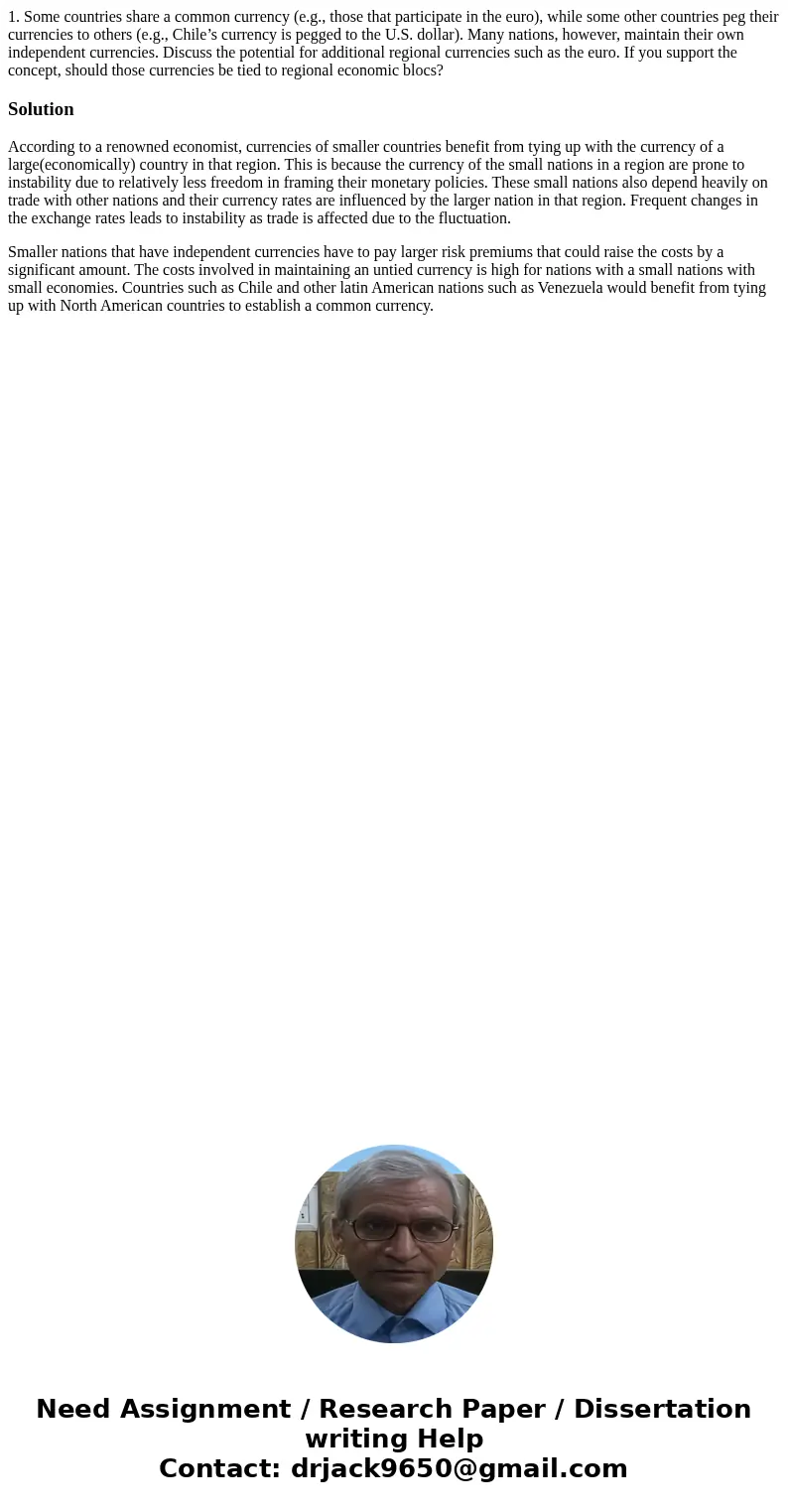1 Some countries share a common currency eg those that parti
1. Some countries share a common currency (e.g., those that participate in the euro), while some other countries peg their currencies to others (e.g., Chile’s currency is pegged to the U.S. dollar). Many nations, however, maintain their own independent currencies. Discuss the potential for additional regional currencies such as the euro. If you support the concept, should those currencies be tied to regional economic blocs?
Solution
According to a renowned economist, currencies of smaller countries benefit from tying up with the currency of a large(economically) country in that region. This is because the currency of the small nations in a region are prone to instability due to relatively less freedom in framing their monetary policies. These small nations also depend heavily on trade with other nations and their currency rates are influenced by the larger nation in that region. Frequent changes in the exchange rates leads to instability as trade is affected due to the fluctuation.
Smaller nations that have independent currencies have to pay larger risk premiums that could raise the costs by a significant amount. The costs involved in maintaining an untied currency is high for nations with a small nations with small economies. Countries such as Chile and other latin American nations such as Venezuela would benefit from tying up with North American countries to establish a common currency.

 Homework Sourse
Homework Sourse